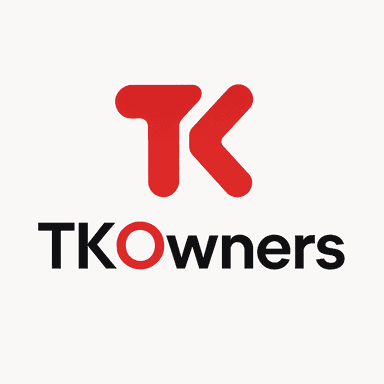Overview / Executive Summary
You know what’s hard to find in the suburbs? A decent court that isn’t packed, cracked, or booked by a local league until 2050. So we build our own. A 30x70 foot slab, topped with custom tiles, ringed with fencing, and lit for night play. It costs $20K to build and can pull in $20K per year at just 40% occupancy. The math is simple. Demand is real. And when you add in local coaches, overbooked rec centers, and sports-hungry parents with cash to spend, this isn’t just a fun project it’s a backyard business with real legs.
Value Proposition
We offer something the city, the school district, and the fancy club can’t: affordable, flexible, and reliable court access. No memberships. No politics. No waiting behind the YMCA volleyball team’s Thursday night practice. Just a clean, professional‑grade sport court with clear lines, working lights, and easy online booking. It’s made for private coaches, small group lessons, or just a couple of friends trying to settle who really has the better jumper.
Target Audience
- Private coaches who need guaranteed access to a court for their sessions
- Parents of youth athletes who want focused, one‑on‑one training
- Adults looking for reliable places to play basketball or pickleball without fighting for space
- Local schools and clubs that need overflow practice space
- Affluent suburban neighborhoods with limited public access and high sports engagement
Pain points: not enough courts, bad court conditions, limited hours, and no easy way to book. We solve all of that.
Market Landscape
Let’s talk numbers. The U.S. sport facility market is humming. With interest in basketball and pickleball surging, hourly rental rates between $30 and $50 are already the norm. The self‑service, private court model is an emerging niche in this space. Most existing options are either big‑box facilities or public parks with unpredictable availability. We sit right in between. The startup cost is around $20K, but returns can top that annually with as little as five hours of rentals per day. Demand is especially high in suburban areas where private lessons are popular and court availability is low.
SEO Opportunities
People search with urgency: “basketball court rental near me,” “private pickleball court,” “rent sport court by the hour,” “court for basketball lessons,” and “pickleball lesson space.” These are transactional searches with clear intent.
- A simple, mobile‑friendly booking website
- Location‑specific landing pages
- Optimized Google Business listings
- Organic content like FAQs, coach profiles, and court highlight reels
We want to be the first click when someone needs a court, not the 10th.
Go‑To‑Market Strategy
- Pre‑launch with intent. Post your plans and mockups to Facebook Marketplace and local groups to test demand before you pour concrete.
- Install fast and clean. Pour the slab, drop the tiles, install the fencing and lighting. Don’t skimp here. A janky court kills repeat business.
- Launch with a waitlist. Reach back out to everyone who showed interest. Give them a “founding member” discount. Fill the first month before your GoDaddy SSL certificate finishes loading.
- Build trust with coaches. They’re your power users. Book them for recurring time blocks. Offer referral credit if they bring in new clients.
- Simple online booking. Use Calendly, Squarespace Scheduling, or whatever lets people pay and book in 60 seconds or less.
- Content is currency. Post highlight videos, progress pics, and testimonials to social. Let parents and coaches do the marketing for you.
Monetization Plan
- Hourly rentals. $30–$50 depending on time and day
- Recurring coach sessions. Lock in repeat bookings with local trainers
- Package pricing. 10 hours for $250, 25 hours for $600
- Add‑ons. Lights‑on fees, branded balls or cones, custom playlists get creative
- Event rentals. Host mini tournaments or birthday parties
You can also explore renting the model itself. Help someone in another suburb copy‑paste your setup and take a cut.
Financial Forecast
Startup Costs (one‑time)
- Concrete slab (30x70 at $6/sq ft): $12,600
- Plastic tiles from China (approx. 2,100 tiles): $1,176
- Fencing (10 ft and 4 ft sections): ~$2,000
- Hoop: $500
- Lighting: $1,500
- Misc (permits, signage, booking system): $1,000
Total: ~$18,776
Operating Costs (annual)
Electricity, insurance, upkeep: ~\$3,000
Revenue (Year 1 Estimate)
4.8 hours/day × $35 avg rate × 365 = ~$61,320
Less 25–30% for costs → Net: ~$20,000–$25,000
Break‑even within the first 12 months if utilization stays consistent.
Risks & Challenges
- Low utilization. Poor location or bad marketing means you just built a very expensive patio.
- Weather. It’s outdoors. Rainy weeks will hurt. Invest in drainage and smart scheduling.
- Noise complaints. Talk to your neighbors early. Give them some free time on the court.
- Equipment damage. Cameras and solid fencing help. So does screening your customers.
- Booking confusion. If your system sucks, people won’t use it. Prioritize clarity.
None of these are dealbreakers. They’re just speed bumps. Plan for them and you’re fine.
Why It’ll Work
This is a hyper‑local, cash‑flow‑positive business that scales sideways. No retail leases, no staff, no inventory. Just a physical asset that earns money when people use it and they will. Sports never go out of style, especially in communities that spend big on their kids and hate waiting in line. It’s a $20K bet that pays for itself in a year and turns into passive income with a concrete floor. Literally.
